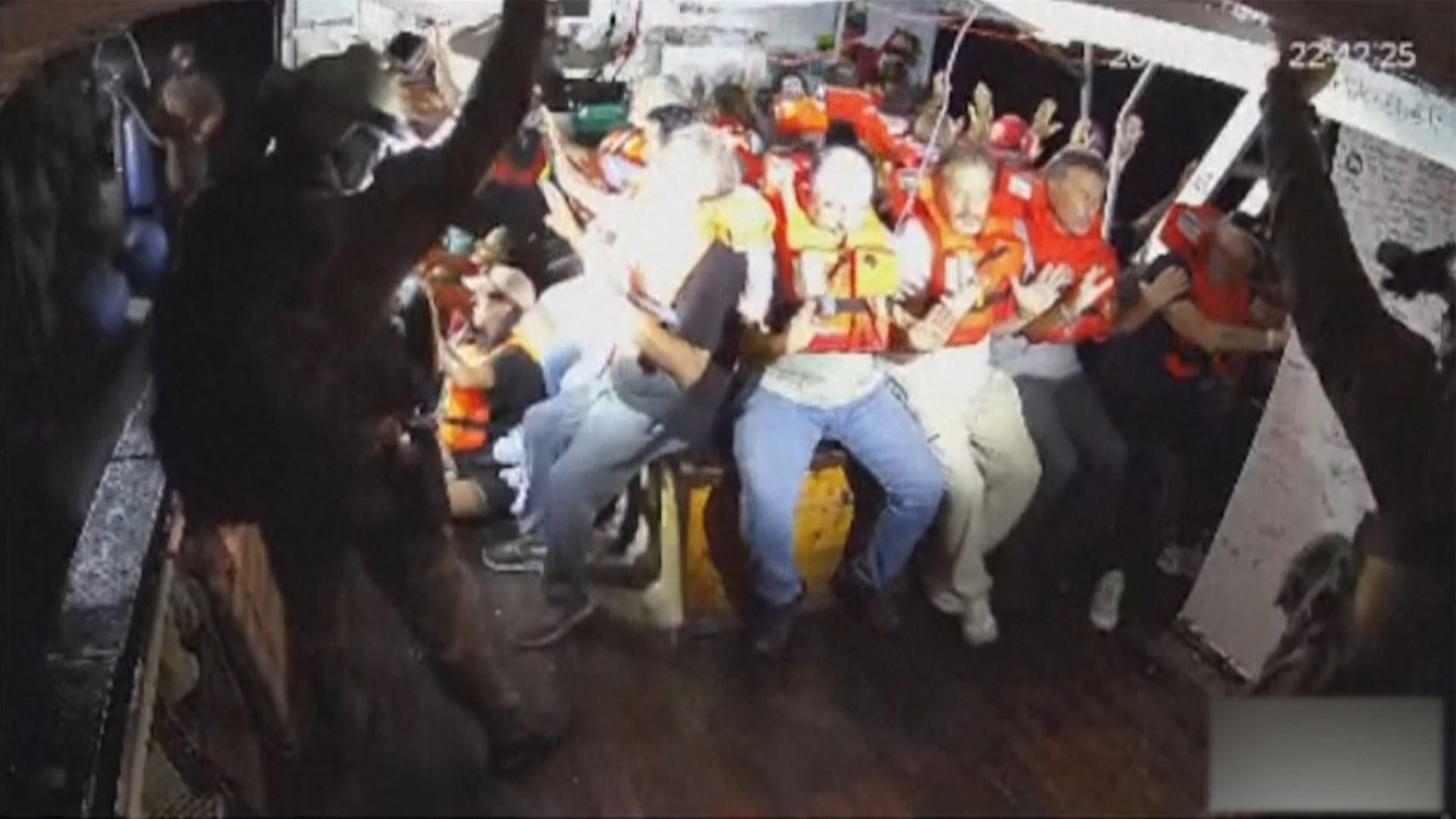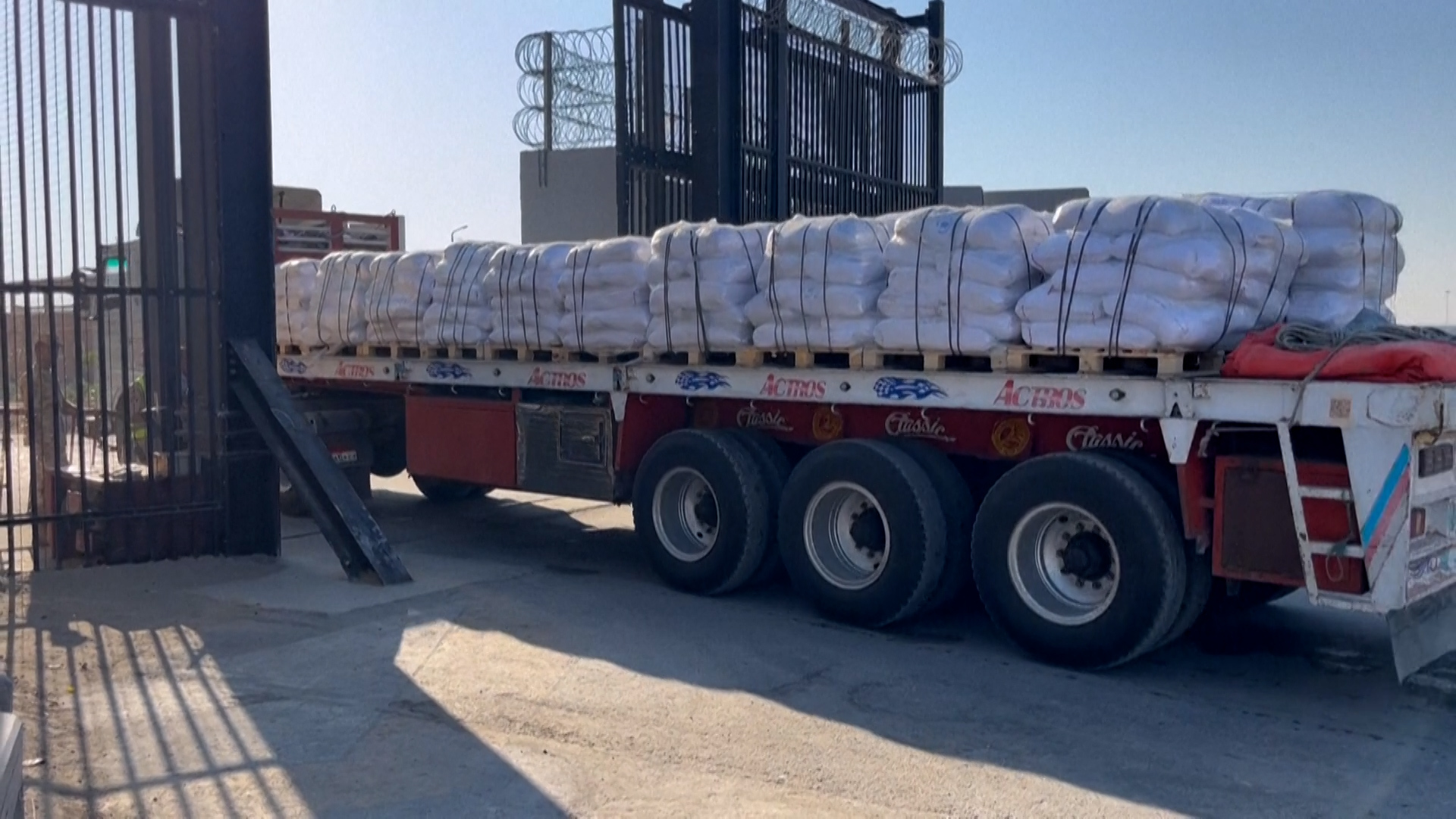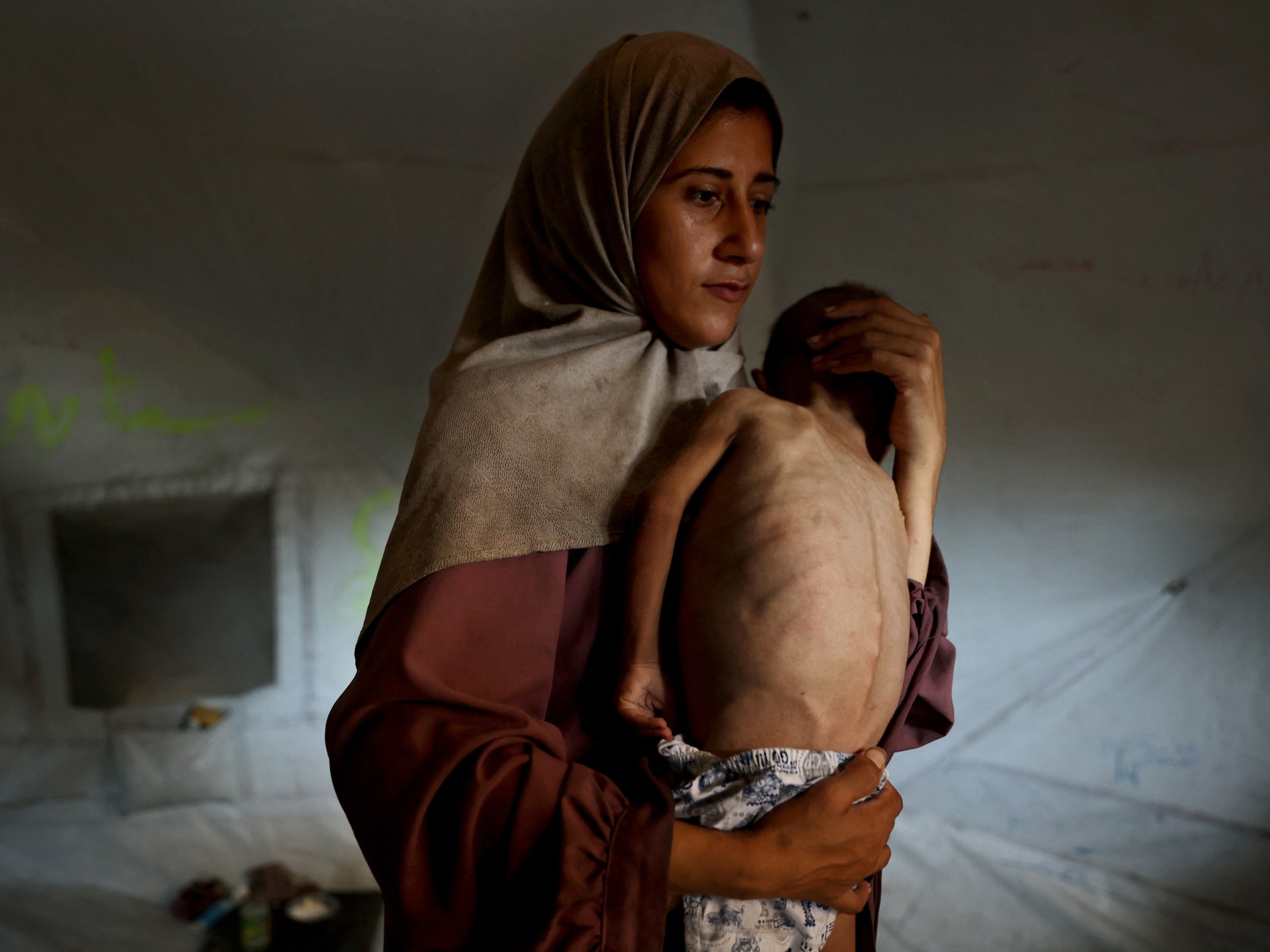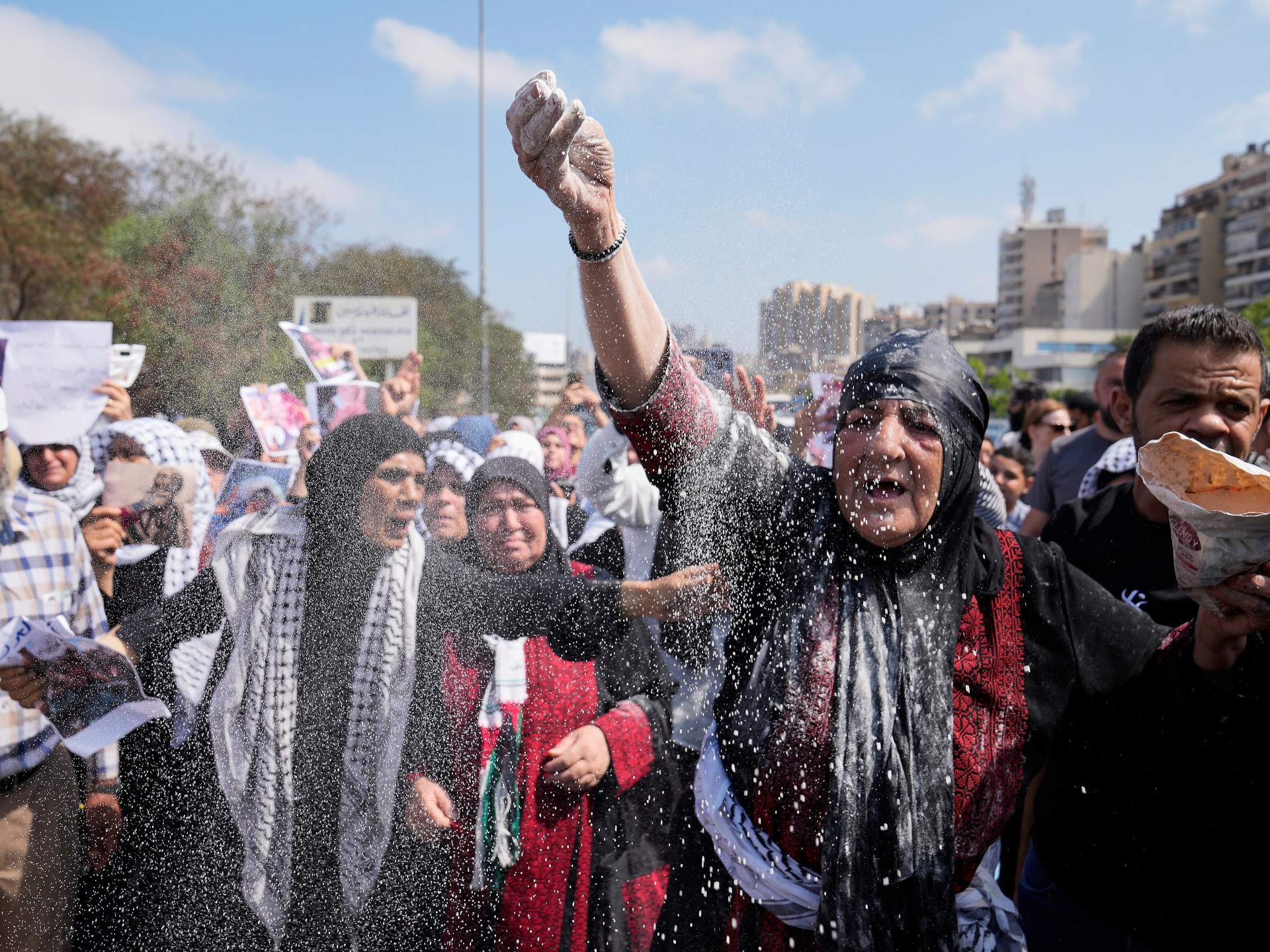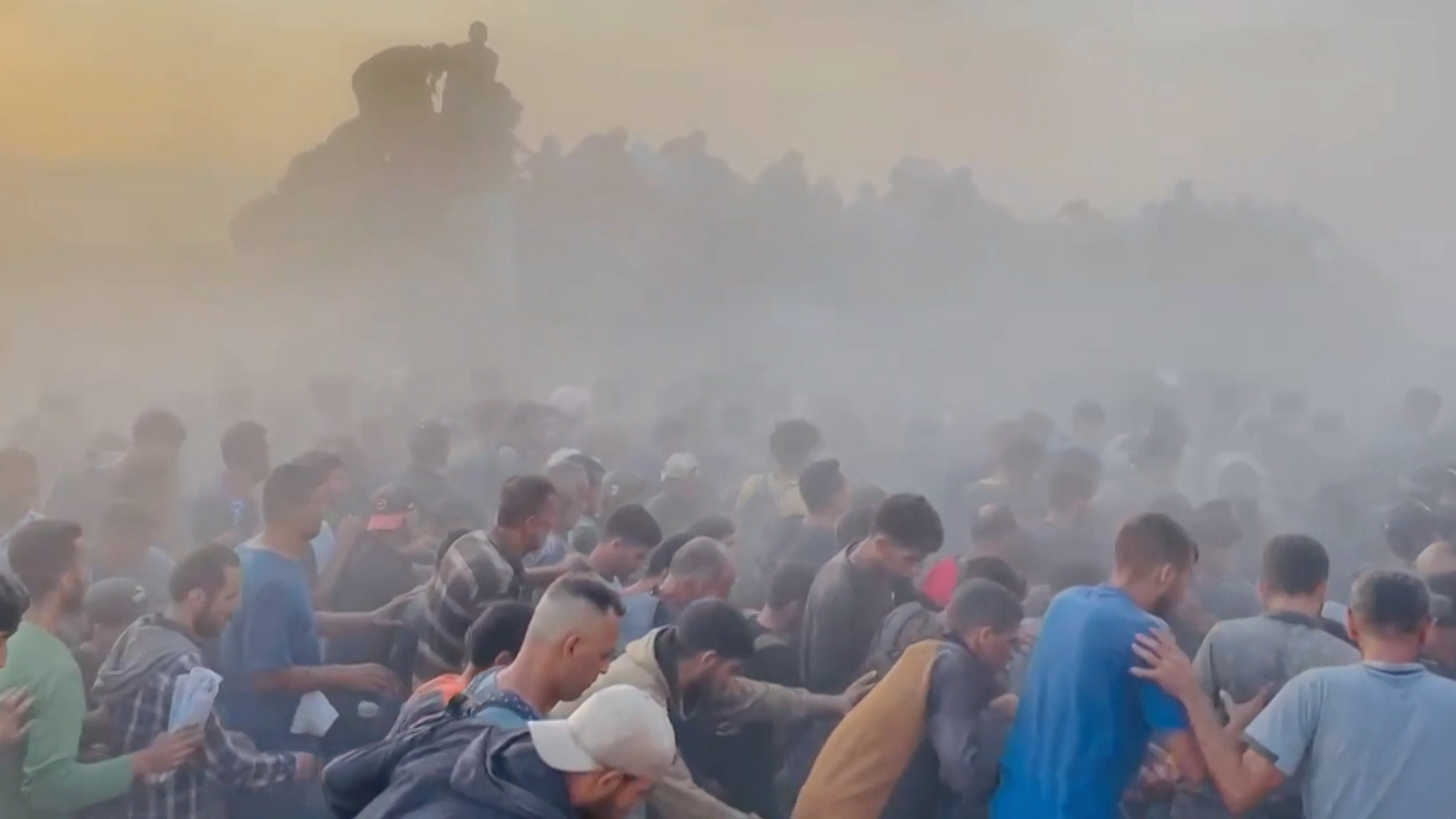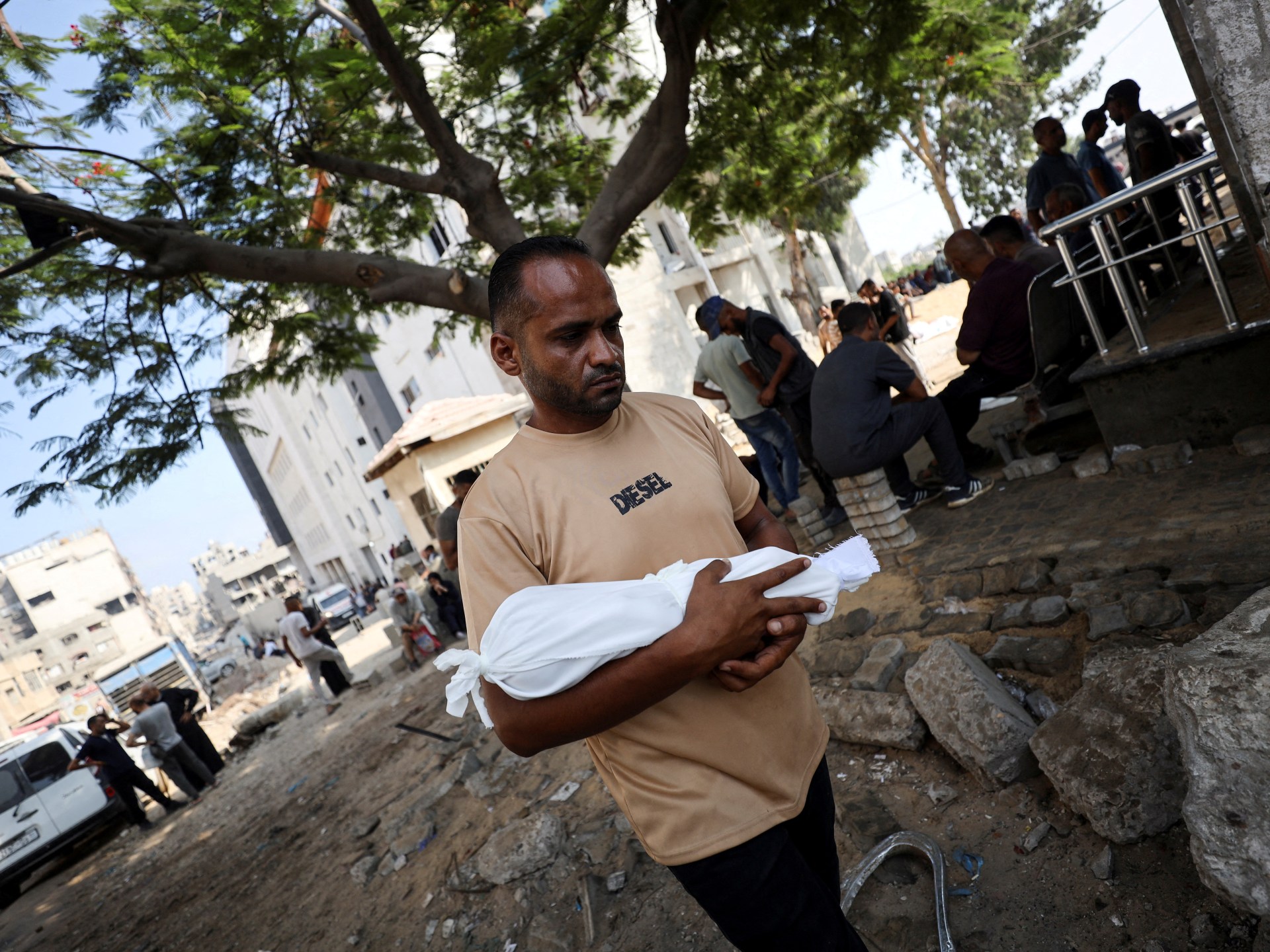Who was Awdah Hathaleen, Palestinian activist killed by an Israeli settler? | Israel-Palestine conflict News
Masafer Yatta, occupied West Bank – Awdah Hathaleen was standing by a fence in the Umm al-Kheir community centre when he was shot in the chest by an Israeli settler on Monday.
The beloved 31-year-old activist and father of three fell to the ground as people rushed over to try to help him. Then an ambulance came out of the nearby illegal settlement of Carmel and took him away.
Israeli authorities have refused to release his body for burial, simply telling his family on Monday night that he had died, depriving them of the closure of laying him to rest immediately, as Islam dictates.
Mourning
Under the scorching sun of the South Hebron Hills, the people of Umm al-Kheir were joined by anti-occupation activists from all over the world – gathered in silence to mourn Awdah, who was a key figure in non-violent resistance against settler violence in Masafer Yatta.
They came together in the same yard where Awdah was standing when he was shot to death by Israeli settler Yinon Levi, who later said, “I’m glad I did it,” according to witnesses.
Rocks had been laid in a circle around Awdah’s blood on the ground, mourners stopping there as if paying their respects.
Around the circle, the elders sat in silence, waiting for news that didn’t arrive on whether Awdah’s body would be returned by the Israeli army.
There is a feeling of shock that Awdah, out of all people, was the one murdered in cold blood, his cousin Eid Hathaleen, 41, told Al Jazeera about his “truly beloved” relative.
“There was [nobody] who contributed as much to the community in Umm al-Kheir as Awdah,” Alaa Hathaleen, 26, Awdah’s cousin and brother-in-law, said.
“I can’t believe that tomorrow I will wake up and Awdah won’t be here.”
Awdah had three children – five-year-old Watan, four-year-old Muhammad, and seven-month-old Kinan – and he loved them above everything else in the world, several of his friends and relatives told Al Jazeera.
“He was a great father,” Alaa said. “The children would go to him more than to their mother.”
Awdah got married in 2019, Jewish Italian activist Micol Hassan told Al Jazeera over the phone. “His wedding was a beautiful occasion in 2019. We organised cars that came from all over Palestine [for it].
“He loved his children so much,” she continued. “Every time he put them to sleep, they cried and asked where their daddy was.”

Hassan, who has been barred from returning to the occupied West Bank by Israeli authorities, also fondly recalled how much Awdah loved coffee and how she would bring him packs of Italian coffee whenever she was able to get to Umm al-Kheir.
Awdah also loved football, playing it every chance he got, even though Umm al-Kheir’s facilities are badly degraded and all the villagers have is a paved yard with dilapidated goalposts.
In fact, Awdah’s last breaths were on that same battered football pitch, possibly the one place in the village where he spent the most time.
No matter how bad settler attacks were, Alaa said, Awdah would sit down with him and discuss their projections and hopes for his favourite team, Spanish side Real Madrid.
“His love for Real Madrid ran in his veins,” Alaa added. “Maybe if they knew how much he loved them, Real Madrid would speak about Masafer Yatta.”
Peaceful activist and ‘radical humanist’
Awdah has been an activist since he was 17 years old, working to stop the Israeli attempts to expel the villagers of Masafer Yatta from their homes and lands.
He hosted countless visiting activists who came to the occupied West Bank to support Palestinian activists and villagers, helping them understand the situation on the ground and embracing their presence with his trademark hospitality.
Perhaps his most famous such collaboration was his work with Basel Adra and Yuval Abraham, who co-directed No Other Land, a documentary film that won an Oscar award this year.
Everyone who spoke to Al Jazeera remembers him as the kindest person, with a brave, peaceful heart.
He was “tayyeb, salim”, they said, using the Arabic words for “kind” and “peaceful”.
Awdah would tell anyone who came to Umm al-Kheir that he didn’t choose to be an activist; it just happened, Hassan told Al Jazeera, adding that he welcomed everyone, regardless of faith or citizenship.
“He was a radical humanist,” she said.
“He wanted the occupation to end without suffering,” said Alaa, adding that Awdah always thought about what the future would bring for his children and others.
He chose to become an English teacher because of that, Eid told Al Jazeera. He wanted the village children to grow up educated and able to tell the world their story in English, so they could reach more people.
“He taught all his students to love and welcome everyone regardless of their faith and origin,” said Eid.
A group of his students – he taught English from grades one through nine in the local school – huddled together in the community centre yard among the mourners, remembering their teacher.
“He would always try to make classes fun,” said Mosab, nine years old.
“He made us laugh,” added his classmate Mohammed, 11.

Murdered by a raging settler
Umm al-Kheir is one of more than 30 villages and hamlets in the West Bank’s Masafer Yatta, a region that, more than any, has seen the consequences of the expansion of settlements and violence linked to it.
The incident that led up to Awdah’s killing began the day before, recounted activist Mattan Berner-Kadish, who had been in Umm al-Kheir providing protective presence to the Palestinian community.
A digger was to be delivered to the illegal settlement, and the villagers had agreed to coordinate the passage of the machinery with the settlers, to prevent any damage to village infrastructure.
But the settler driving the machinery ran over a water pipe and began rolling over other infrastructure, threatening to roll into the town and cause more damage.
When villagers gathered to try to stop the machinery, the operator used the digger’s claw to hit one of them in the head, dropping him to the ground, semi-conscious.
Awdah was 10-15 metres (30-50 feet) away from the altercation, standing in the community centre yard, looking on.
In the chaos, gunshots started ringing out, and Berner-Kadish saw Yinon Levi shooting at people. Amid the screams and panic, he realised that Awdah had been shot.
An Israeli settler just shot Odeh Hadalin in the lungs, a remarkable activist who helped us film No Other Land in Masafer Yatta. Residents identified Yinon Levi, sanctioned by the EU and US, as the shooter. This is him in the video firing like crazy. pic.twitter.com/xH1Uo6L1wN
— Yuval Abraham יובל אברהם (@yuval_abraham) July 28, 2025
He tried to calm Levi down, telling him that he had directly shot someone and likely killed him. To which Levi responded: “I’m glad I did it.”
Berner-Kadish also tried to talk to the Israeli soldiers who arrived on the scene, only to hear from three of them that they wished they had been the ones to shoot Awdah.
Following the murder, the Israeli army arrested five men from the Hathaleen family. On Tuesday, the Israeli army closed the area around Umm al-Kheir, restricting any access to it.
Also on Tuesday, Levi was released to house arrest by Israeli courts, which charged him with negligent homicide.
Levi was sanctioned by Canada, the United Kingdom and the United States for violent attacks on Palestinians.
The five Hathaleen men arrested after Awdah was killed are still in Israeli custody, Alaa told Al Jazeera.
Weeping, he fretted: “What if [the Israelis] return [Awdah’s] body and they can’t pay their last tribute to them?”

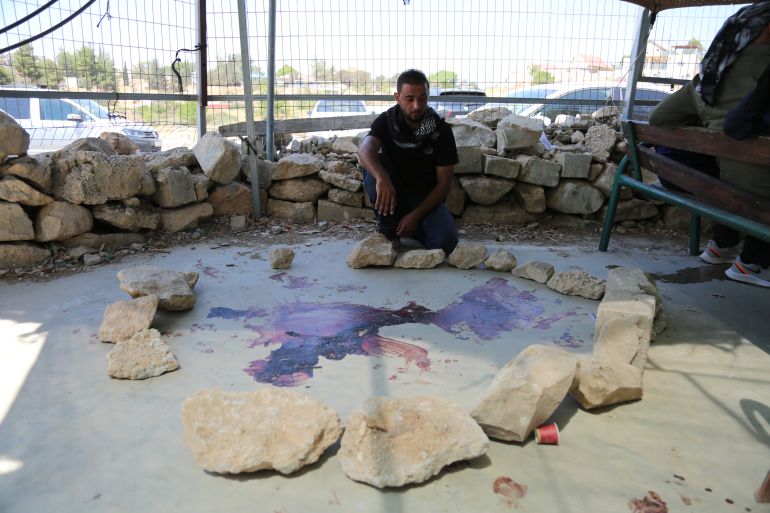
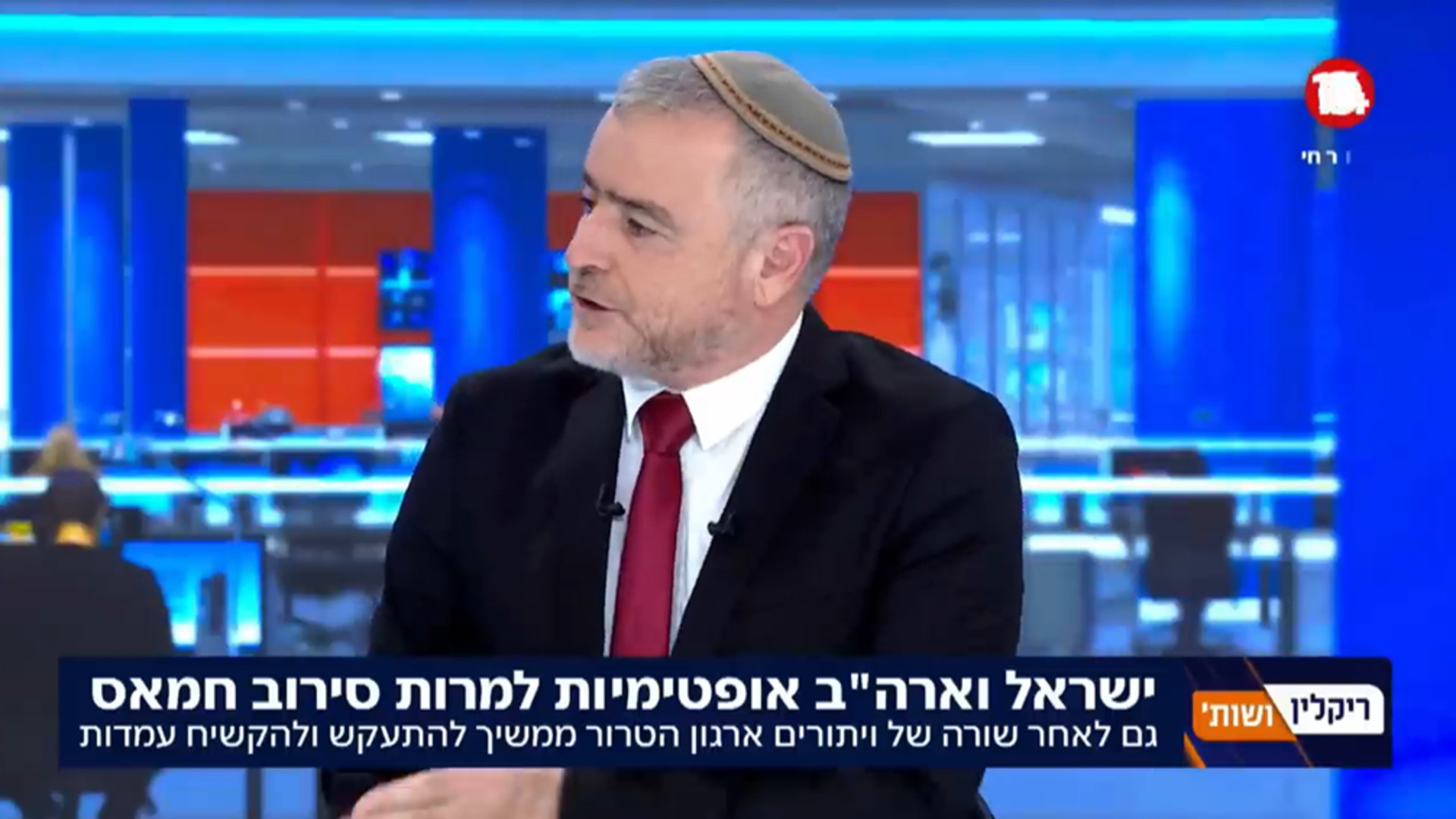
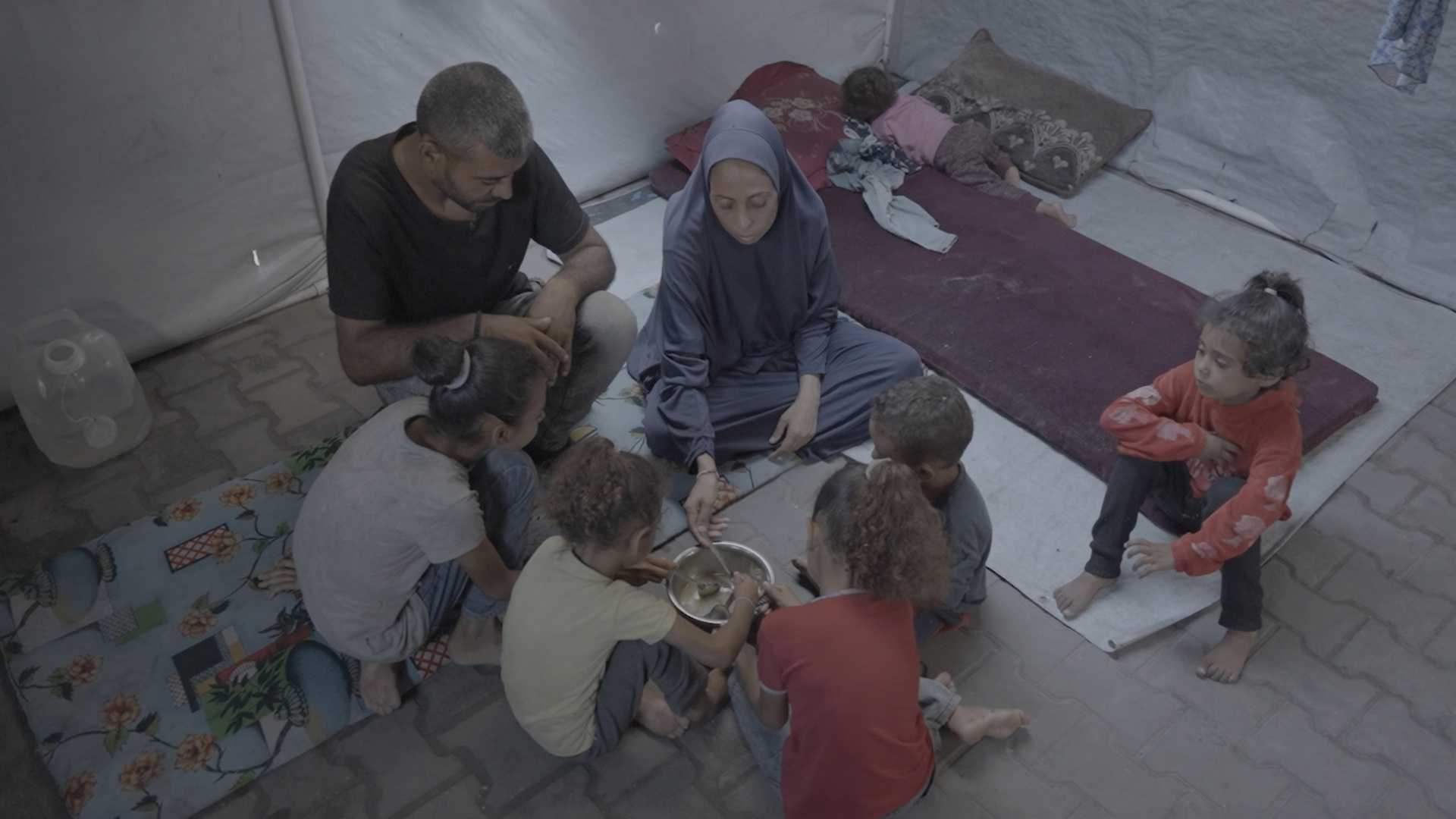
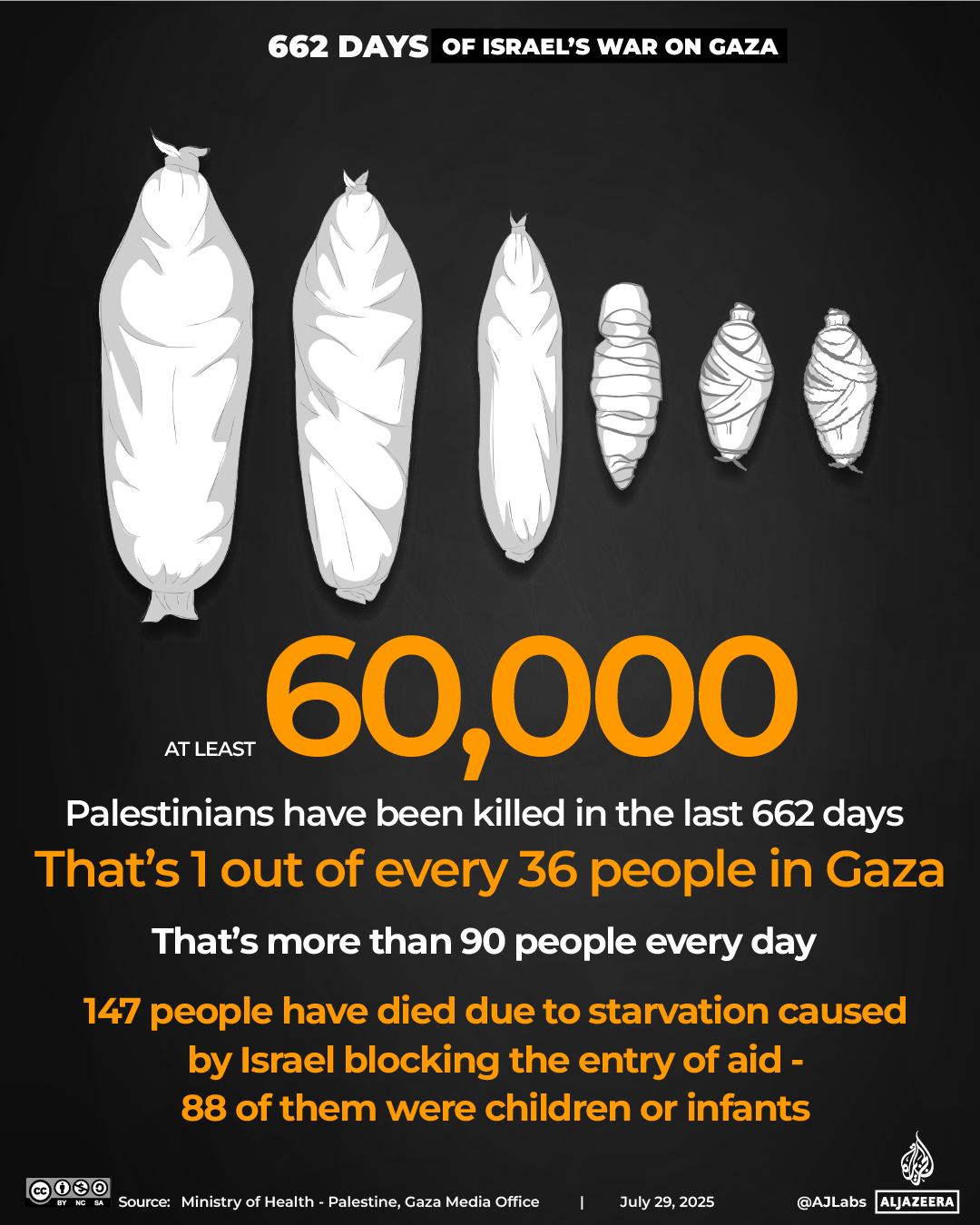


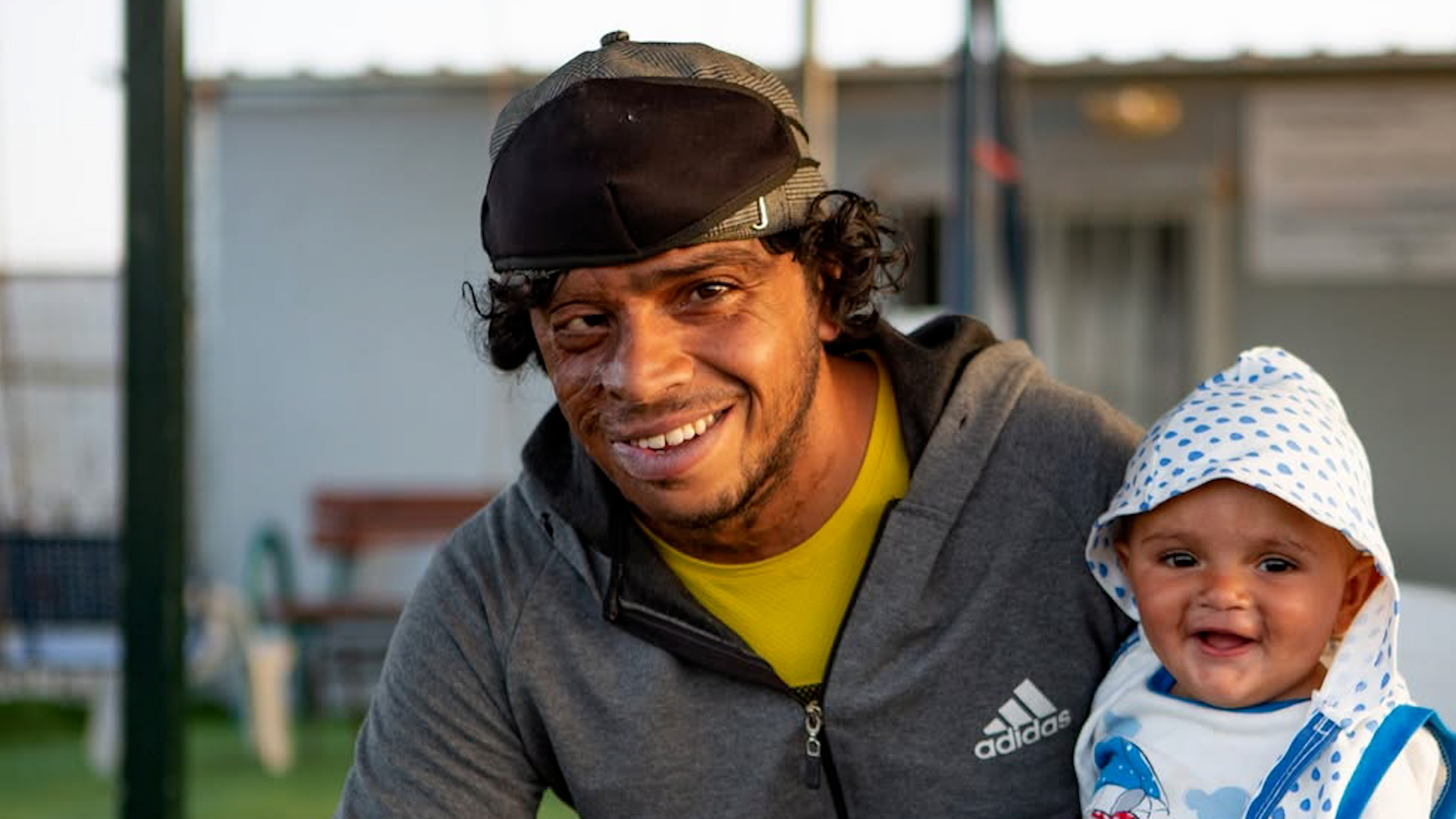
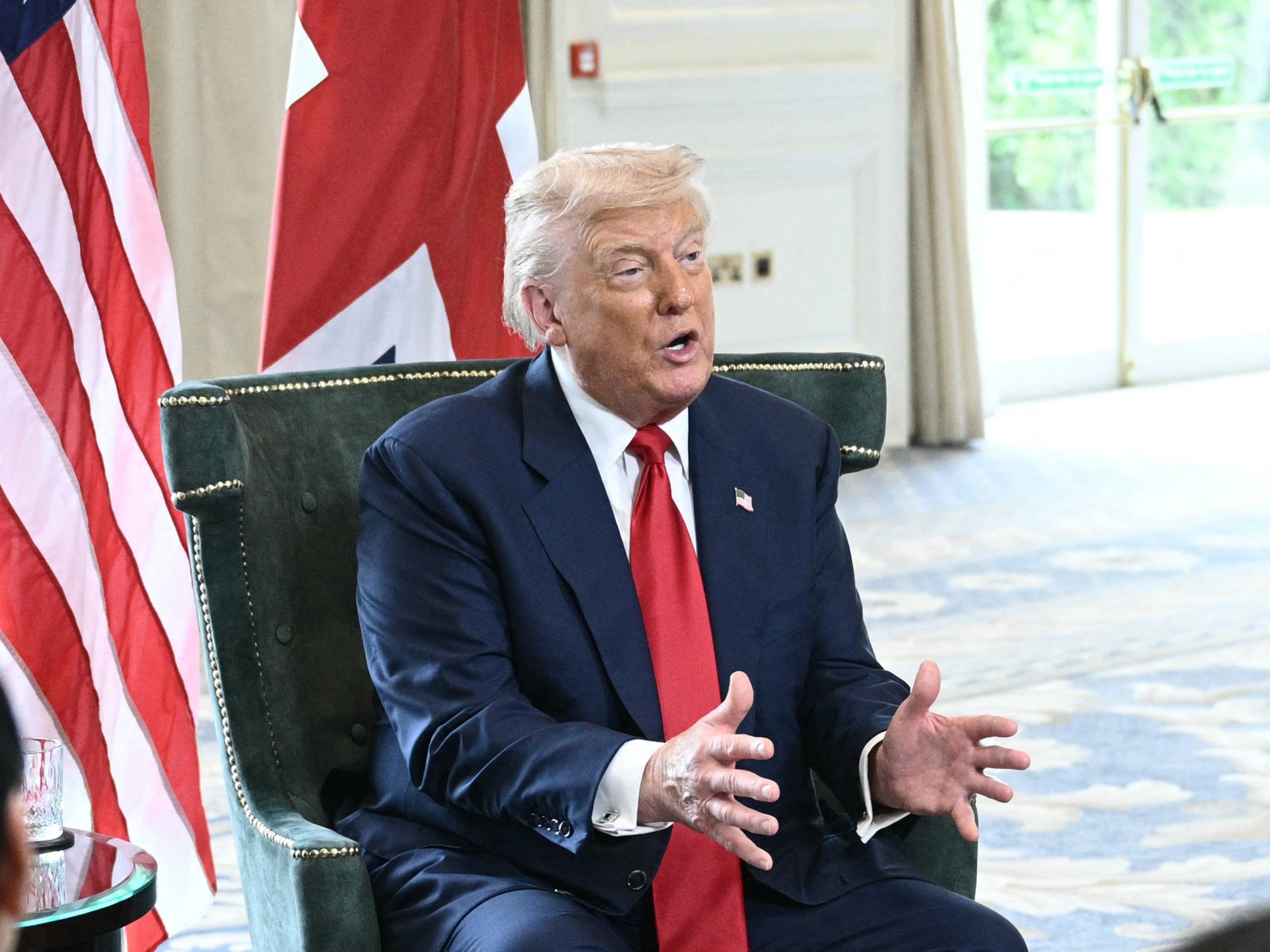
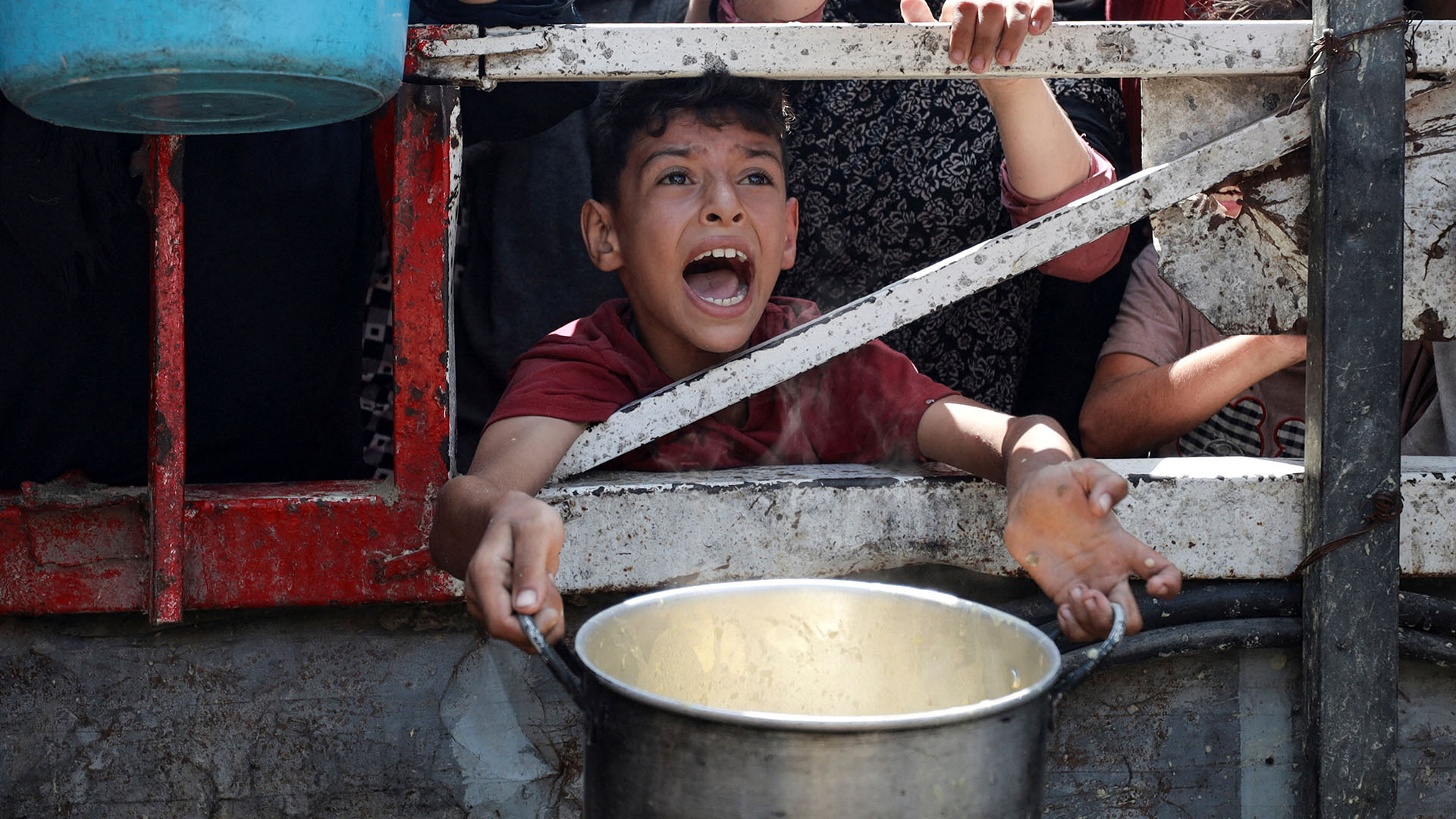
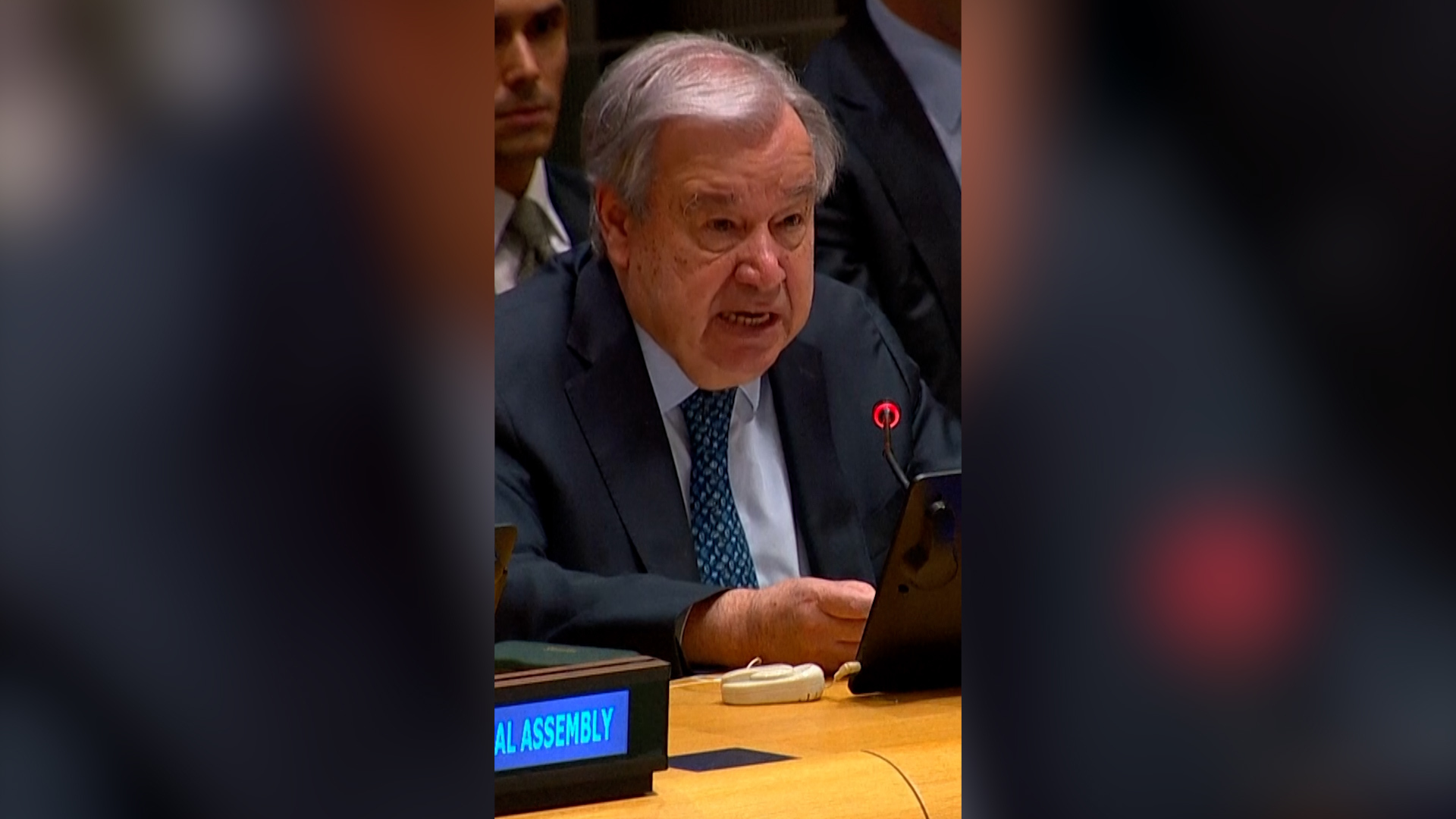

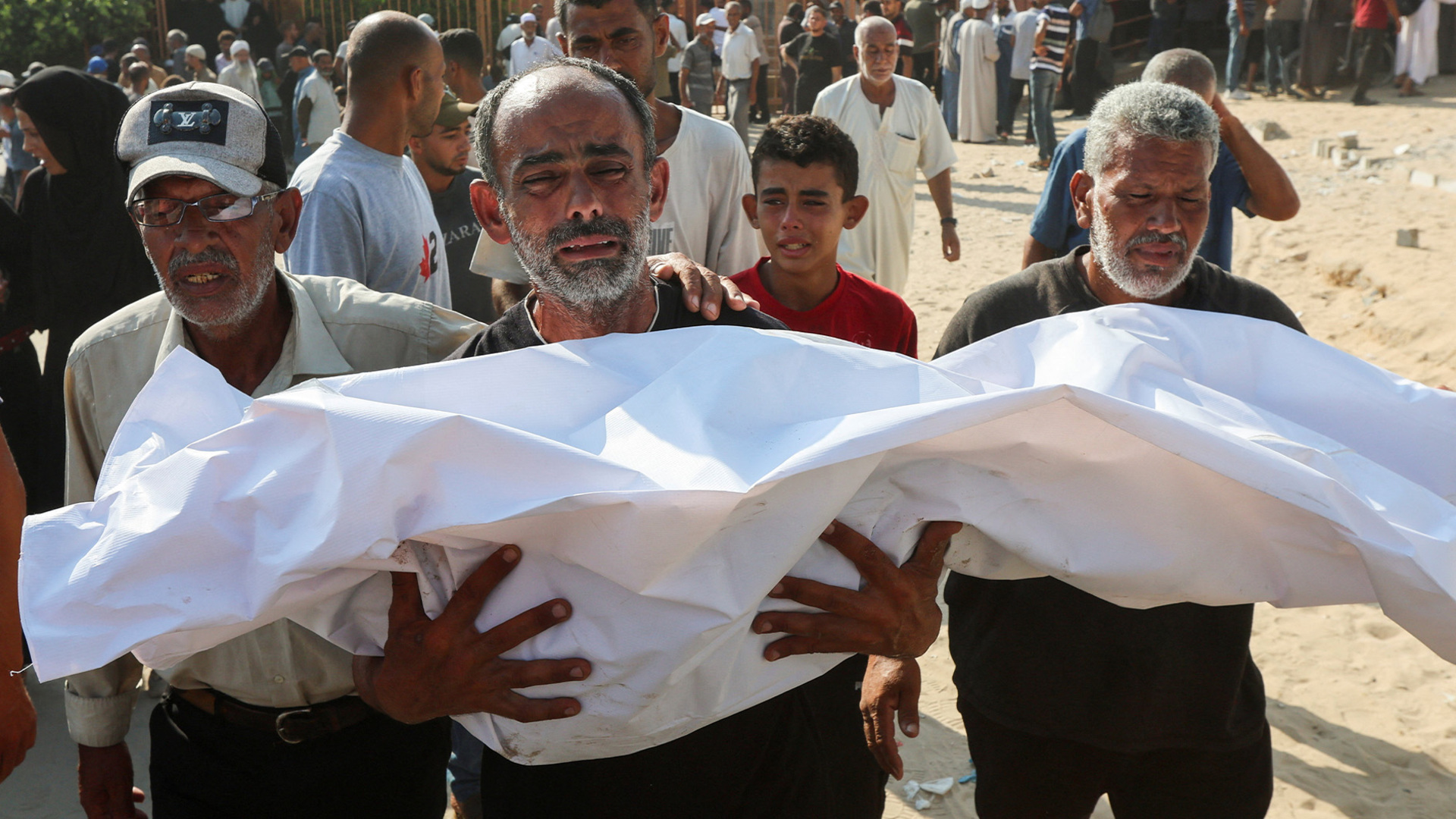
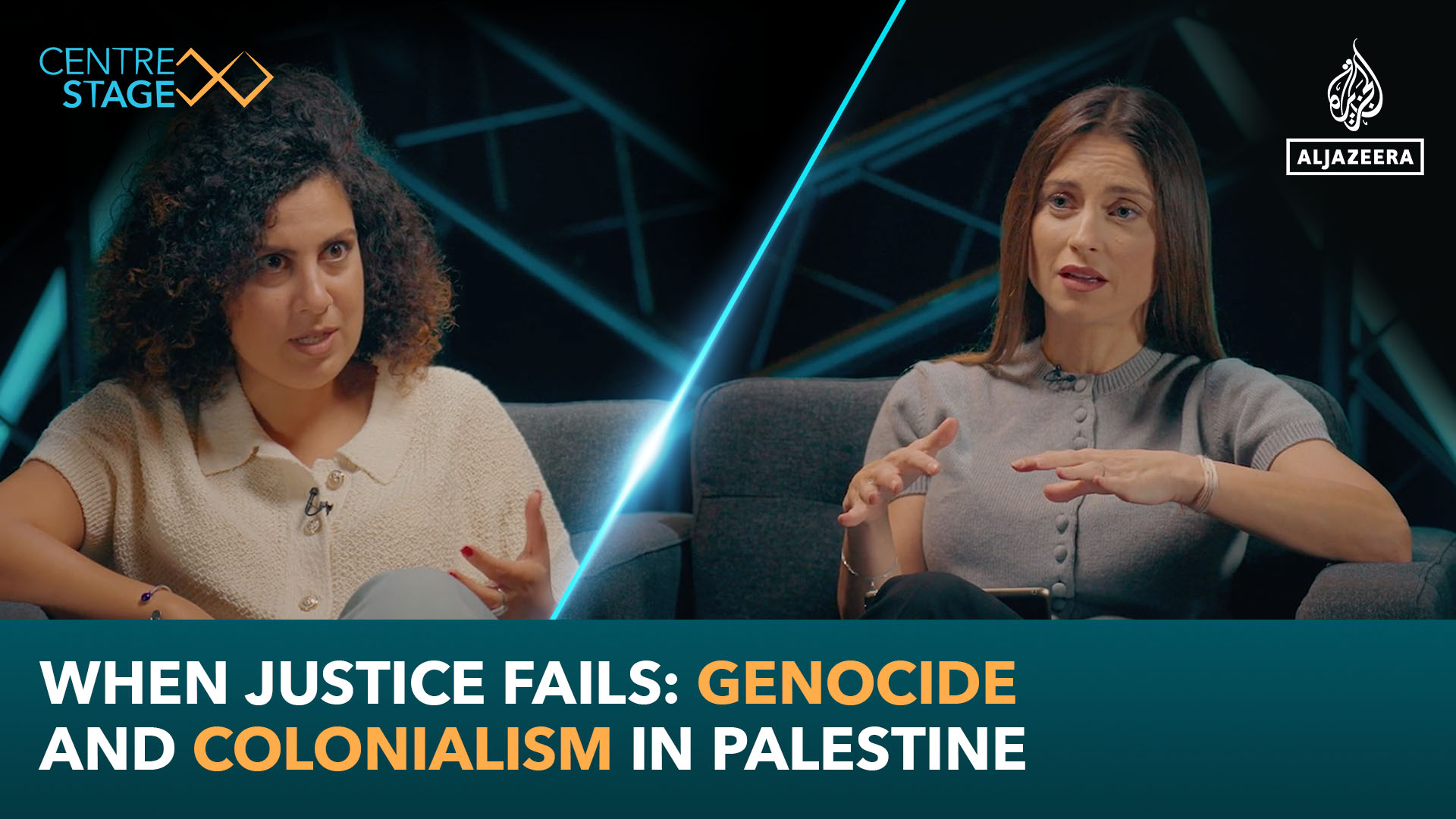
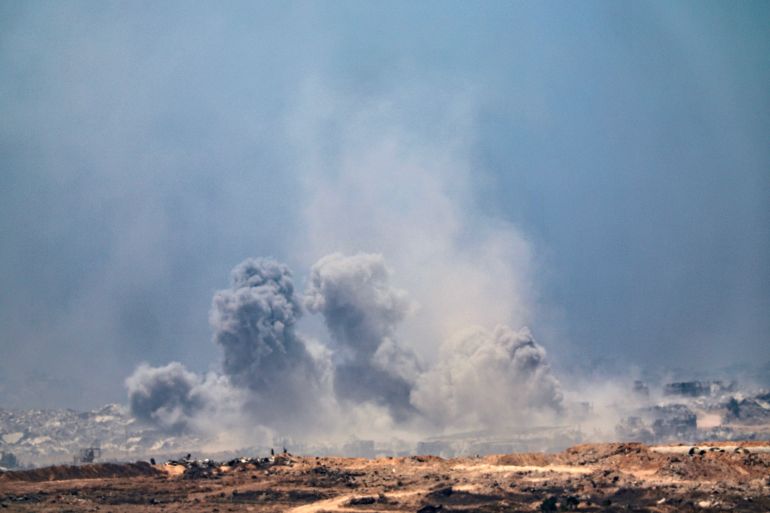


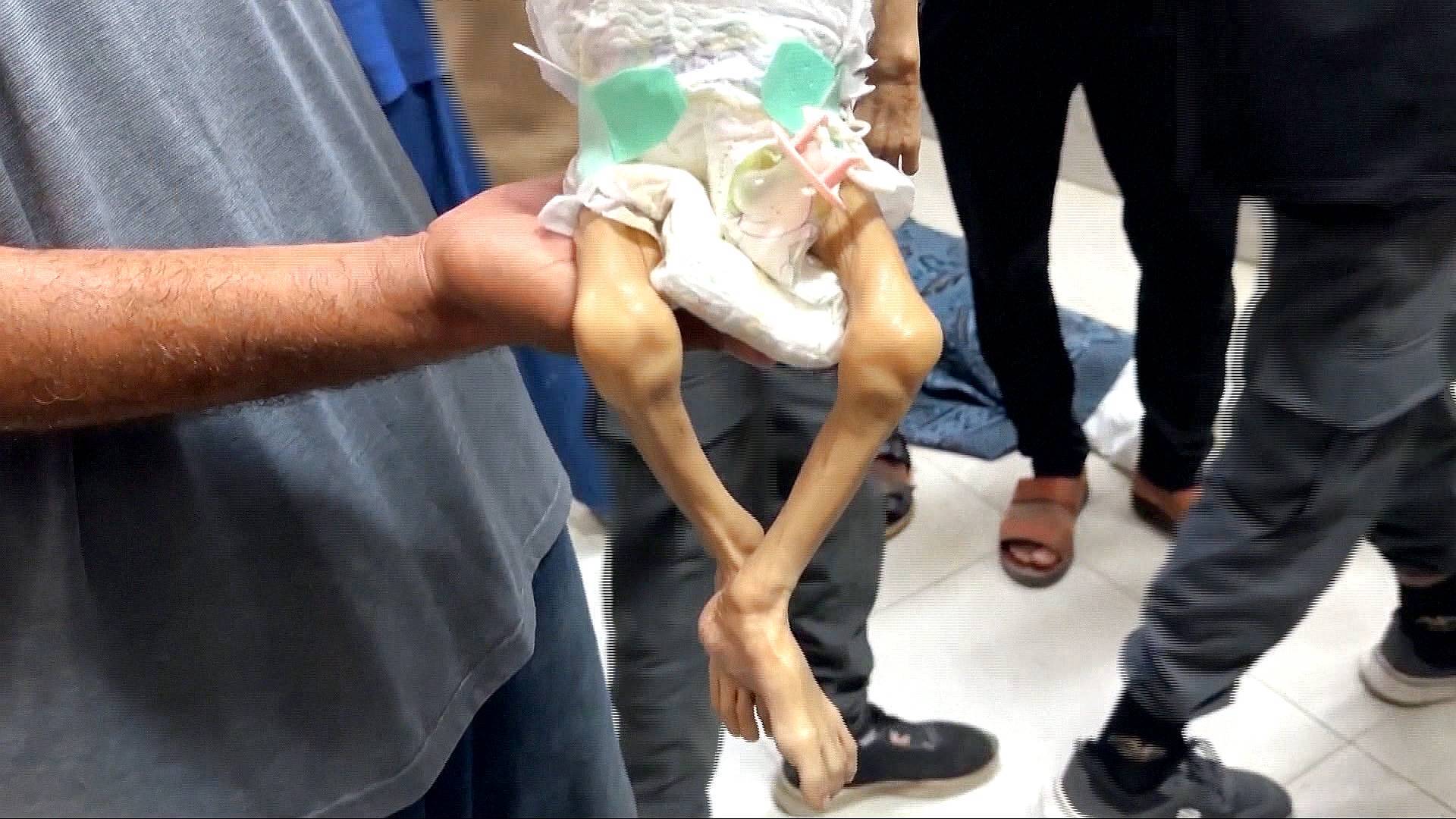
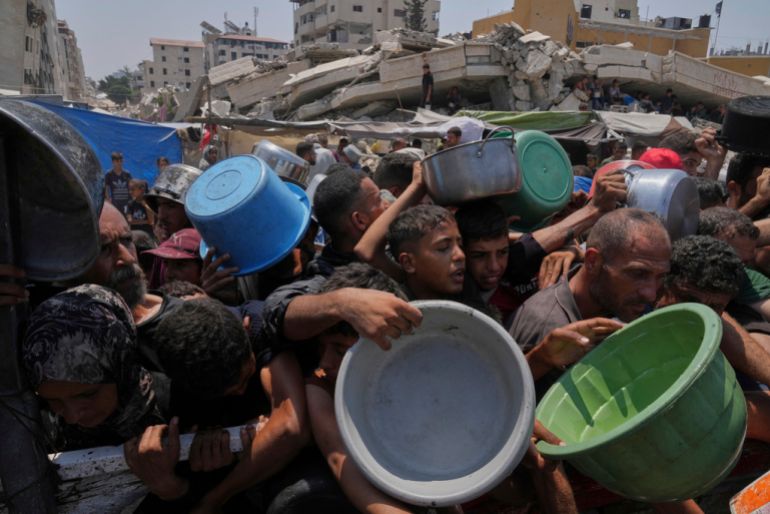
![Palestinians carry aid supplies that entered Gaza through Israel, in Beit Lahia in the northern Gaza Strip, July 27, 2025. [Dawoud Abu Alkas/Reuters]](https://www.occasionaldigest.com/wp-content/uploads/2025/07/2025-07-27T074350Z_529668594_RC2VUFAEGUPF_RTRMADP_3_ISRAEL-PALESTINIANS-GAZA-1753608681.jpg)
